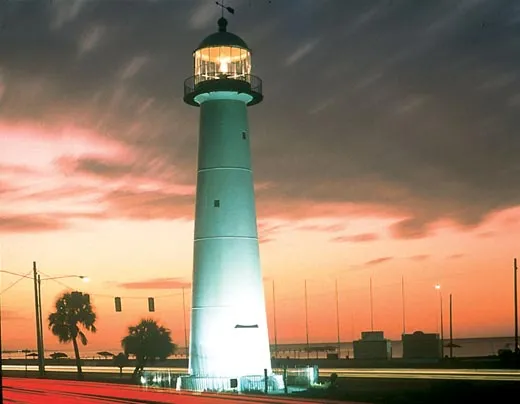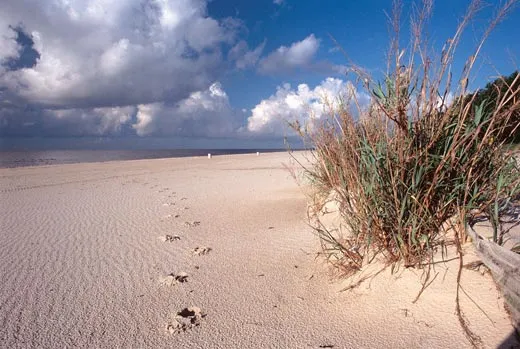Mississippi - History and Heritage
Long before recorded history, Mississippi's natural bounty of rivers teeming with fish, woodlands full of game, nuts, and berries, and coastal lands rich with shellfish attracted waves of settlers, the ancestors of the southeastern tribes we know today.
These peoples began cultivating the land about 2,000 years ago, planting corn, beans, squash and tobacco. The various tribes were much alike in their religious beliefs, which centered on a powerful unseen god or great spirit. The Natchez Indians particularly venerated the sun. Because the southeastern Indians did not develop written language as we know it—though they did use pictographs to record events—these traditions were passed down from the elders to the younger members of the tribe. In Choctaw, Mississippi means "father of waters," and refers, of course, to the mighty river that flows from Minnesota to the Gulf of Mexico and forms Mississippi's western border.
Probably the first white men to enter the interior of the territory were Spanish explorers led by Hernando de Soto, who wandered across the present state in search of gold in 1540 and 1541. The Spaniards found that the land was densely populated with Indians, and they suffered a serious attack from at least one Mississippi tribe, the Chickasaws.
When the second wave of Europeans arrived in the 1700s, some 15 tribes lived in the area now called Mississippi. The most populous were the Choctaw in the east central part of the state with a population of about 20,000, the Chickasaw, who lived in the north and numbered about 5,000, and the 5,000-strong Natchez, of the lower Mississippi.
The Europeans' arrival devastated many native communities. The Natchez were nearly exterminated by the French, as were the Yazoo. Other groups fared better, at least until the 1800s when treaties both honorable and fraudulent transferred land rights away from the tribes, sending many Mississippi natives to Indian territory in Oklahoma. But the Mississippi Band of Choctaws, descendants of Choctaws who refused to leave their homeland, still live near Philadelphia, Mississippi, not far from Nanih Waiya, a celebrated Indian mound thought by many Choctaw Indians to be the "mother mound" of their creation legend.
During the Civil War, Union and Confederate soldiers fought some of their fiercest battles in Mississippi. Indeed, sites that played significant roles in the conflict can be found in every quarter of the state.
Later, during the civil rights movement, Mississippi again took center stage. Murders of African Americans by the Ku Klux Klan and others, as well as the integration of the University of Mississippi by James Meredith, garnered national attention that eventually helped bring about the 1964 Civil Rights Act.
Throughout Mississippi's dramatic history, the state has turned out an incredible amount of artistic talent. Mississippi is the birthplace of the blues, and of many of the genre's greatest stars, as well as countless other musicians and writers. Among the most notable are writers William Faulkner, Eudora Welty, Richard Wright, Walker Percy and Tennessee Williams, and musicians Muddy Waters, Howlin' Wolf, Robert Johnson, B.B. King and Elvis. And that's only a tiny fraction of the roster.
Mississippi today is a state with profound respect for its own history and its role in the evolution of the United States. The constant flow of the mighty Mississippi and the lushness of the landscape nurture memories both ancient and recent, and invite visitors to discover Mississippi past and present.
Planning Your Next Trip?
Explore great travel deals
Smithsonian magazine participates in affiliate link advertising programs. If you purchase an item through these links, we receive a commission.





